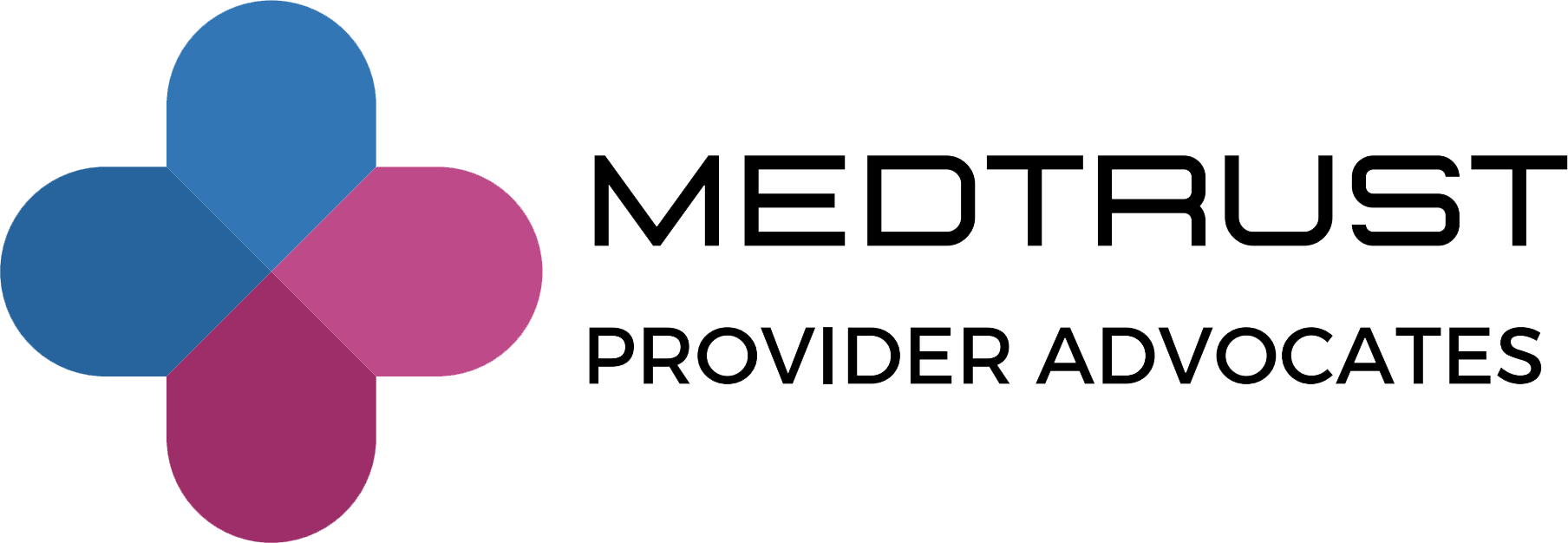Navigating the Medical Credentialing Process: FAQs Answered
The healthcare industry can be complex, especially when it comes to insurance credentialing. Whether you’re an independent practitioner or starting your own healthcare practice, understanding the credentialing process is essential to getting reimbursed for services. At MedTrust Provider Advocates, we simplify this process for you. Below, we answer some frequently asked questions about credentialing and working with insurance companies.
What’s Included in Credentialing?
Credentialing involves verifying multiple aspects of a provider’s qualifications, including:
- Education and Training: Verifying degrees, residency, and relevant training
- Licensure: Ensuring the provider is licensed to practice
- Experience: Reviewing the provider’s clinical practice history
- Criminal Background: Conducting a background check
- Malpractice Claims: Checking past malpractice cases and other risk factors
Why Is Credentialing Important?
Credentialing is crucial because it ensures:
- Patients receive care from qualified professionals
- Maintaining Quality Standards by validating educational background and professional experience.
- Regulatory Compliance to avoid legal consequences and ensure proper reimbursement for services
- Healthcare providers can accept third-party reimbursements from insurance companies.
Who’s Involved in Credentialing?
- Healthcare Providers: Responsible for submitting the required documentation
- Credentialing Organizations: Responsible for verifying submitted information
- National Agencies: Oversee credentialing standards to maintain quality care
Do I Need an EIN or Can I Apply with My SSN?
One of the most common questions we receive is whether a provider must have an Employer Identification Number (EIN) to apply for credentialing. The good news is that you can apply under either an EIN or your Social Security Number (SSN). However, establishing a business entity and using an EIN provides certain tax advantages and can also help protect you from individual liability.
Can I Bill Clients and Still Get Paid if I Am Not In-Network with an Insurance Panel?
Yes, you can bill clients and get paid if you are an out-of-network provider. As an out-of-network provider, you can provide the patient with a superbill that they can submit directly to the insurance company. Alternatively, you can file claims directly with the insurance company, but this will likely result in an out-of-network deductible that you will have to collect from your patient. Once the patient’s deductible has been satisfied, you’ll be able to get reimbursed by the insurance company at the out-of-network rate.
What Fees Are Required by the Insurance Company to Set Up Credentialing?
The good news is there are no fees associated with getting credentialed with a private insurance company. Governmental insurance programs, such as Medicaid and Medicare, may have specific state-based fees which depend on the type of panel and the state in which you practice. It’s best to check with your state’s guidelines or consult with our team at MedTrust Provider Advocates for precise details.
How Much Do Companies Charge for Credentialing?
Credentialing costs can range anywhere from $100 to $500 per provider per panel. A panel refers to each insurance company and it’s for each individual provider. Remember, you get what you pay for—lower fees may not always provide the best service.
How Much Does MedTrust Charge for Credentialing?
MedTrust offers competitive, flexible pricing based on which panels you apply for and the number of providers you need to have credentialed. The cost is variable and depends on the complexity of your credentialing needs. Since every provider’s situation is unique, we encourage you to contact us for a personalized quote. Our team is always ready to assist you.
How Much Does CAQH Credentialing Cost?
The CAQH (Council for Affordable Quality Healthcare) system is used by many insurance companies to streamline the credentialing and provider enrollment processes and is offered at no cost to you.
What Are Three of the Most Common Items Considered Unprofessional Conduct by State Medical Practice Acts?
- Malpractice claims
- Arrest records
- High debt, bankruptcy, or back child support (for Medicare/Medicaid credentialing)
How Long Does It Take to Get Credentialed with Texas Medicaid?
The credentialing process with Texas Medicaid typically takes between 100-180 days.
What Is the Most Rigorous Form of Credentialing?
Facility credentialing is considered the most challenging form of credentialing and applies to hospitals and outpatient facilities. This involves credentialing the facility itself as an umbrella for a number of providers to work under.
How Do I Contact BCBSTX Credentialing?
Blue Cross Blue Shield of Texas (BCBSTX) often directs inquiries to their web portal. A good starting point is to check their website under the contact section for credentialing support.

